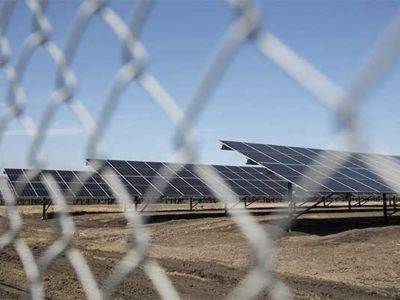- 67% of Canadians would prioritize clean energy projects over fossil fuel development.
- 87% see the clean energy sector as vital to Canada’s economy in the next decade, with 85% backing stronger or sustained federal climate action.
- 76% of Canadians prefer alignment with Europe on climate and clean energy policy, and 70% support EV-ready, low-carbon new homes.
In a period of global uncertainty—shaped by trade tensions, U.S. election turmoil, and national security concerns—Canadians appear united on one front: the transition to clean energy.
A new poll conducted by Abacus Data for Clean Energy Canada reveals that two-thirds (67%) of Canadians would prioritize clean energy projects—such as renewables, critical minerals, and energy storage—over conventional oil and gas development, if forced to choose.
More striking, 87% of Canadians see clean energy as “very” or “pretty” important to the country’s economic future over the next decade, surpassing fossil fuels (83%). Support for climate action is similarly broad: 85% of respondents believe the federal government should either maintain or increase its efforts to combat climate change.
Only 14% say Ottawa should do less.
“The consensus on climate action and the transition to clean energy remains overwhelmingly positive,” said Trevor Melanson, communications director at Clean Energy Canada.
Public opinion in Canada is shifting decisively toward clean energy, with a large majority supporting policies that embed climate solutions into housing, infrastructure, and trade.
Alignment with Europe
Perhaps the most revealing figure: 76% of Canadians prefer to align with Europe’s climate and energy ambitions over the United States’—a view that cuts across age, region, and party lines, with especially strong support among those over 60 (82%). This alignment suggests Canadians are looking beyond North American fossil fuel politics toward markets like the EU, which are racing to decarbonize.
Europe’s accelerated clean energy push—driven by its Fit for 55 strategy and REPowerEU plan—emphasizes electrification, renewables, and critical minerals, precisely the sectors where Canadian expertise and exports are growing. As Canada seeks deeper trade links with Europe and Indo-Pacific partners, a clean energy alignment could become an economic advantage.
Building the Net-Zero Home

A net-zero home in London, Ontario, Canada /TERRAVIEW CUSTOM HOMES
Support for decarbonization also reaches into Canadians’ views on housing. The poll finds 64% want new homes built with low-carbon materials (assuming no cost penalty), while 70% favour making EV chargers and heat pumps standard in new construction.
The message: Canadians want climate-friendly options built in—not added on later.
With housing starts ramping up to address affordability, experts argue that embedding climate-ready features from the outset is both cheaper and smarter.
Retrofitting homes for electrification later can be two to three times more expensive. Provinces such as B.C. and Quebec have already mandated high-efficiency standards—other regions could soon follow if public opinion continues to shift.
Maturing Clean Energy Sector
Canada’s clean energy sector has grown quietly but steadily. According to Natural Resources Canada, the sector employed over 300,000 Canadians as of 2022, with the Conference Board forecasting significant growth this decade as clean power and electrification take hold.
Renewables already supply nearly 65% of the country’s electricity, led by hydro, wind, and increasingly solar. Ontario, Quebec, and British Columbia have recently ramped up grid modernization and transmission investment.
Yet fossil fuel extraction still represents 10% of Canada’s GDP, and oil sands output is expected to rise this year.
Perspective: Policy Lagging Public Will
The Abacus poll suggests that public sentiment has moved beyond political debates that still dominate Parliament Hill. As Canada edges toward its 2035 net-zero electricity goal, this widening gap between voter preferences and actual policy could shape the next federal election.
If anything, the results signal that the clean energy transition is no longer a niche environmental issue—but a core economic priority for most Canadians.















Comments